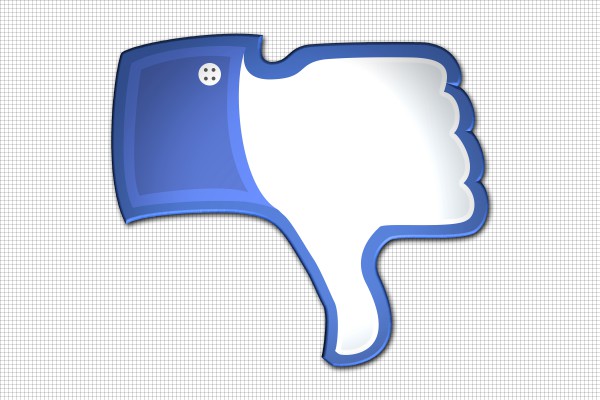My husband and I have moved interstate a number of times and in each new place that we make our home, we collect a whole bunch of wonderful new friends. It truly is a blessing to be able to arrive in a place where everything is so unfamiliar and slowly, but surely, create new social networks until eventually it feels like home. Of course, those friendships are also what make it so difficult to leave a place when later the time comes to move on – and this is why I love social media (especially Facebook).
Social media has meant that I’ve been able to maintain friendships that might otherwise have fallen by the wayside with the busyness of life and the tyranny of distance.
But last week I had a revelation, which very nearly caused me to deactivate my Facebook account.
Let me be clear that as a psychologist I’m all over the potential downsides of social media. Facebook gets a beating for wasting our time and reducing our capacity for sustained attention; for encouraging narcissistic behaviour; and for contributing to low mood or even depression when people use it to engage in upward social comparisons. In my mind, I’m too smart to fall for any of that. I know that Facebook is the ‘highlights reel’ and we all know that you don’t compare your own ‘behind the scenes’ with everyone else’s highlights. (And if you haven’t yet learned that, I encourage you to remind yourself of this fact every time you find yourself judging your real life negatively compared with someone else’s Facebook life).
It wasn’t any of these potential Facebook perils that had me looking for the ‘deactivate’ button. It was, in fact, a series of events that eventually led to a light-bulb moment about the quality of my friendships.
It started late last year when I had the wonderful opportunity of catching up with a friend I hadn’t seen for many years. She is gorgeous and successful, a world traveller and inspirational leader. I couldn’t wait to hear about the good fortune she’d experienced in the years since we’d last seen each other. Her social media updates depicted a life being very well lived. But when we sat down together, I discovered that actually life had not been as kind to her as Facebook would have had me believe. She had struggled with chronic illness, financial losses, legal battles, and relationship heartbreak.
I had no idea.
I had a similar experience when I caught up later with another friend and learned that she was going through fairly tumultuous changes in her life. As we spoke, she described to me what I know to be many of the symptoms of major depression. Again I was confronted with how little I knew about what was really going on in someone’s life because I hadn’t bothered to ask.
And then just a few weeks ago I received an apology from a friend for her delay in replying to a message I’d sent. Her apologetic message began with the words “Despite Facebook appearances….” and went on to explain that she’d been dealing with some difficult personal issues. I was already aware of what some of those difficulties were, but I was struck by those three words “Despite Facebook appearances…”
In fact, I couldn’t shake them. I wasn’t really sure what was so surprising to me about those words because like I already said, we all know that Facebook is the highlights reel and if we’re honest, none of us expects anyone to post the darker sides of life on our lighthearted, time-wasting, superficial social media. Still, I couldn’t help feeling that there was a message here for me and I was missing it. And then the penny dropped.
All this time while I’ve been defending Facebook as an important tool for maintaining connections, what Facebook has been giving me is the illusion of connection. And because of the illusion created by seeing snippets of people’s daily lives and activities, and photos of their kids, I have become lazy about maintaining real connections.
I’ve realised that when I see pictures and updates on Facebook, I don’t have the opportunity to miss someone or to wonder what they’re up to. If I did, I might call or email them; and in replying, they would likely skip over the daily trivia and tell me about the important stuff of their lives. (I doubt they would tell me where they just had their morning tea or send me a photo of their coffee.) In a one-on-one conversation they might confide in me or ask my advice or just allow me to listen. And if life really is grand, I could share in their joy in a much more personal and meaningful way. But because of the illusion of connection created by Facebook, I haven’t given them that opportunity.
Since having this realisation, I’ve resolved to work harder on maintaining direct and personal communication with the people who are important to me – although I still think it would be easier if I didn’t have Facebook hoodwinking me into believing I know what is happening in people’s lives. While I might not have deactivated my account just yet, I certainly have a new skepticism about the role of social media in supporting my social connections.
Facebook has been put on notice that our relationship is on shaky ground, and I still haven’t ruled out the idea of a temporary or permanent break. Meanwhile, I’ll be making a lot more effort to talk to my friends and find out what’s really going on behind the status updates.
